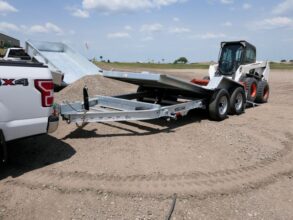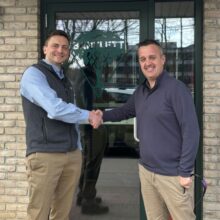A Growing Niche: Environmentally Friendly Landscapes
By Janet S. Hartin
Excerpted from “Become a Landscape Company Owner” by Janet Hartin (fabjob.com).
While being a good steward of our environment has been a goal of many landscapers for decades, more and more residential, commercial and government customers throughout the United States and Canada are specifically requesting these services. These clients often go straight to companies that promote environmentally friendly landscaping rather than calling a “run-of-the-mill” company that does not specifically mention these services in promotional materials. So, you could be the most forward-thinking, progressive landscaper in your area and still miss out on a lot of business if you don’t let potential customers know that you share their views.
In many cases, companies that have always provided services stressing principals and practices of what is now called “eco-landscaping” are changing the way they promote their business to gain a larger percentage of this growing market. Some have even changed their company’s name and almost all now target this market in their advertising.
Some practices you can promote to let your customers know that your company is responding in a positive way to environmental issues are as follows:
Integrated pest management (IPM): Integrated pest management emphasizes the use of prevention and sound maintenance practices to avoid disease, insect and weed problems, and eliminate or greatly reduce the need for chemical pesticides. Incorporating these principals can greatly improve the health and vitality of a landscape.
Water efficient landscapes: Landscapes that use drip systems, mulches, “Smart” controllers, and drought-resistant plants are part of a booming industry. Many landscape companies are starting to specialize in this area. Drought-resistant plants can be native or introduced. When customers request that only natives be planted, make sure you select only those species that do well in stressful urban environments. Also, take the time to educate your clients in this area and point out that not all natives do well in “modern” conditions, nor are they always more drought-resistant than non-natives.
Compost-amended landscapes: Many states have restricted how much yard and lawn clippings can be dumped in landfills. Due to this, there is a growing supply for compost made from recycled grass clippings and tree and shrub prunings. Compost incorporated into flower beds and non-tree landscape plantings can greatly improve the quality of the soil, increasing its water-holding capacity and supply of oxygen.
Energy-efficient landscapes: Many companies are choosing to offer hand-weeding and raking services in lieu of using power rakes and blowers to stay ahead of the growing list of cities banning these products due to noise and air pollution concerns. Those companies still using traditional methods should be aware that manufacturers of landscape equipment are constantly offering redesigned mowers and leaf blowers that comply with the United States Environmental Protection Act (EPA) and Canada’s Clean Air Act.
Sustainable landscapes: Sustainable landscaping centers around low-input landscaping that requires few resources and very low maintenance. This area is growing by leaps and bounds, and many college and universities are now offering courses, and even majors, in this field. A forerunner in this movement is the University of Minnesota, which provides excellent educational materials available through its Sustainable Urban Landscape Information Series (SULIS) that can be instantly accessed at http://www.sustland.umn.edu/. Topics include landscape design and plant selection, installation and maintenance.
Janet S. Hartin has served as environmental horticulturist for the University of California Cooperative Extension in San Bernardino and Los Angeles Counties since 1984. She specializes in sustainable landscaping issues such as irrigation scheduling, greenwaste management, and integrated pest management.


